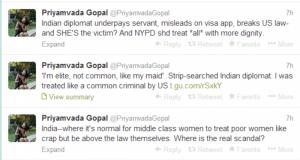This is an article I wrote in 2003. I thought I’d lost it because it was removed from the page where it was originally published, and I’d failed to stash a copy securely and couldn’t find it on the internet archive. Then just now I realized what the right search term would be to find it, and sure enough it was. So I’m publishing it again.
There is a famous morality tale in Herodotus.
Darius…called together some of the Greeks…and asked them what they would take to eat their dead fathers. They said that no price in the world would make them do so. After that Darius summoned those of the Indians who are called Callatians, who do eat their parents, and, in the presence of the Greeks…, asked them what price would make them burn their dead fathers with fire. They shouted aloud, “Don’t mention such horrors!” These are matters of settled custom, and I think Pindar is right when he says, “Custom is king of all.” [3, 38. David Grene translation]
Herodotus noticed twenty-five centuries ago what people go on noticing today: customs and taboos differ from one society to another, one town to another, one household to another. Some people think circumcision is disgusting, some think its absence is; some think female genital mutilation is repugnant, others think female genitals in their pre-mutilation state are. Chinese women used to find unbound feet just as ugly and crude and silly-looking as men did; they endured the pain and crippling of binding, and forced it on their daughters and grandaughters. The result was generations of women who could barely walk and couldn’t possibly run, but were proud owners of the lotus foot – a foot which, by being folded in half, created a new orifice just the right size for an erect penis. Custom is king of all.
Such customs and taboos, however arbitrary and even harmful they may be, have their uses. They help create and reinforce group solidarity and loyalty. They’re yet another way of demarcating and emphasizing that highly prized difference between Us and Them, Our People and Those Other People, Self and Other. Like many animals, humans organize their lives around what Freud in one of his moments of lucidity called the narcissism of minor differences: Friend and Stranger, Greek and Barbarian, Home and Away, Blue and Green, Man United and Liverpool, Big Endian and Little Endian, Native and Alien. Catholic and Protestant, Muslim and Jew, believer and infidel – it’s all too obvious where this goes. People in 16th Century France slaughtered each other in wholesale lots over a drop of wine and a bit of bread. The Indian Mutiny of 1857 is said to have been triggered partly by the use of beef tallow to lubricate guns. The issues involved can seem staggeringly trivial, but to some at least the payoff in arousing and engorging the sensation of loyalty and Hurrah for our team is worth it.
Desire for that invidious thrill of belonging is no doubt what motivates the relentless nagging about Family Values in the US over the past twenty years or so. Forget all that Wider Community stuff, forget going down to Mississippi to try to help undo some of their more vicious and destructive taboos and group loyalties and untraversable borders, forget famines in Ethiopia or little wars in Asia, just stick to your own clan and let other people stick to theirs. Nobody really gives a damn about anybody but relatives, after all, so let’s just all hunker down in our own tiny group. I had a senior relative who used to rebuke my misbehavior when I was a child by saying sternly ‘We don’t do that in this house,’ which always made me dislike him quite a lot, but no doubt gave him a thrill.
It’s a popular thrill, saying ‘We don’t do that here.’ Leon Kass, chair of the Council on Bioethics in the Bush administration, wrote a famous article for The New Republic in 1997, entitled ‘The Wisdom of Repugnance.’ ‘Repugnance is the emotional expression of deep wisdom, beyond reason’s power to express it,’ he said. But this business of repugnance we can’t quite articulate should give us pause – should make us come to a screeching halt, in fact. Why can’t we articulate it? Could it be because there is nothing to articulate? If we have good reasons for doing or not doing a thing, aren’t we normally able to put them in words? ‘Because I said so’ is all right when telling children what to do, because who has time to explain every single thing to a five-year-old, but for an actual official indeed presidential council, one expects a little more. Arm-waving and saying ‘I can’t explain’ don’t really match the job description.
Especially since people have always ‘just somehow known’ in their guts or their hearts or their gluteus maximus, without being able to say why, all sorts of things that the world would be better off if they hadn’t just known. That Africans should be slaves, that Jews were polluting Germany, that women should be kept under house arrest at all times, that witches should be burnt, that the races must never mix. We’re all too adept at thinking what we’re not used to is inherently disgusting. John Ruskin never consummated his marriage because he thought his wife’s pubic hair was disgusting. He’d never seen a living naked woman before, only paintings and statues, and he wasn’t used to it. No doubt he thought it was very wrong of Effie to have it. All sorts of things are disgusting. Slimy wet rotting vegetation is disgusting, pus is disgusting, a swollen decomposing squirrel in the woods is disgusting. But is there any moral content to this disgust? Should the squirrel pull itself together and stop decaying in that nasty way? Should pus take thought and transform itself into peach ice cream?
Habit and familiarity have a great deal (though not everything) to do with what people find disgusting but very little to do with ethics. Cruelty, exploitation, injustice, violence don’t become better with repetition, they only become easier for the perpetrators, such as the regular guys turned obedient Jew-killers of Christopher Browning’s Ordinary Men. Disgust is good clean fun and provides endless amusement for children, but it’s worthless as a moral compass. Saying ‘Ew, ick, yuk, gross,’ and saying ‘That’s wrong’ are two different things. It’s a long-standing confusion, going back to Plato if not farther, to think the beautiful is the good and the good is the beautiful, but it’s not necessarily so.
(This is a syndicated post. Read the original at FreeThoughtBlogs.)



